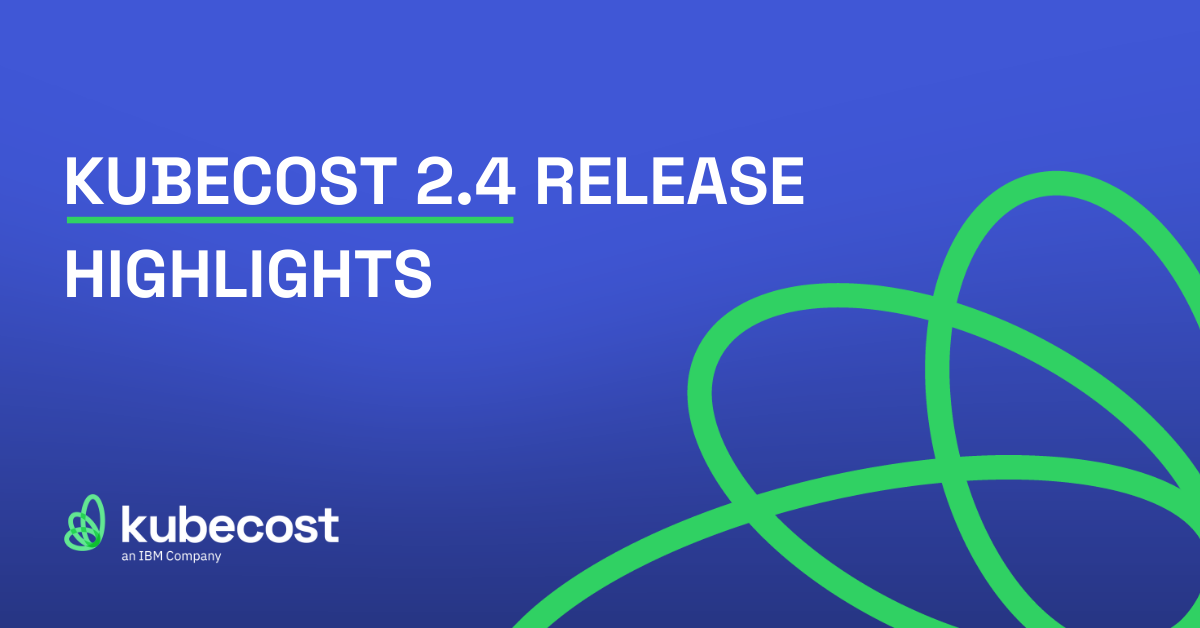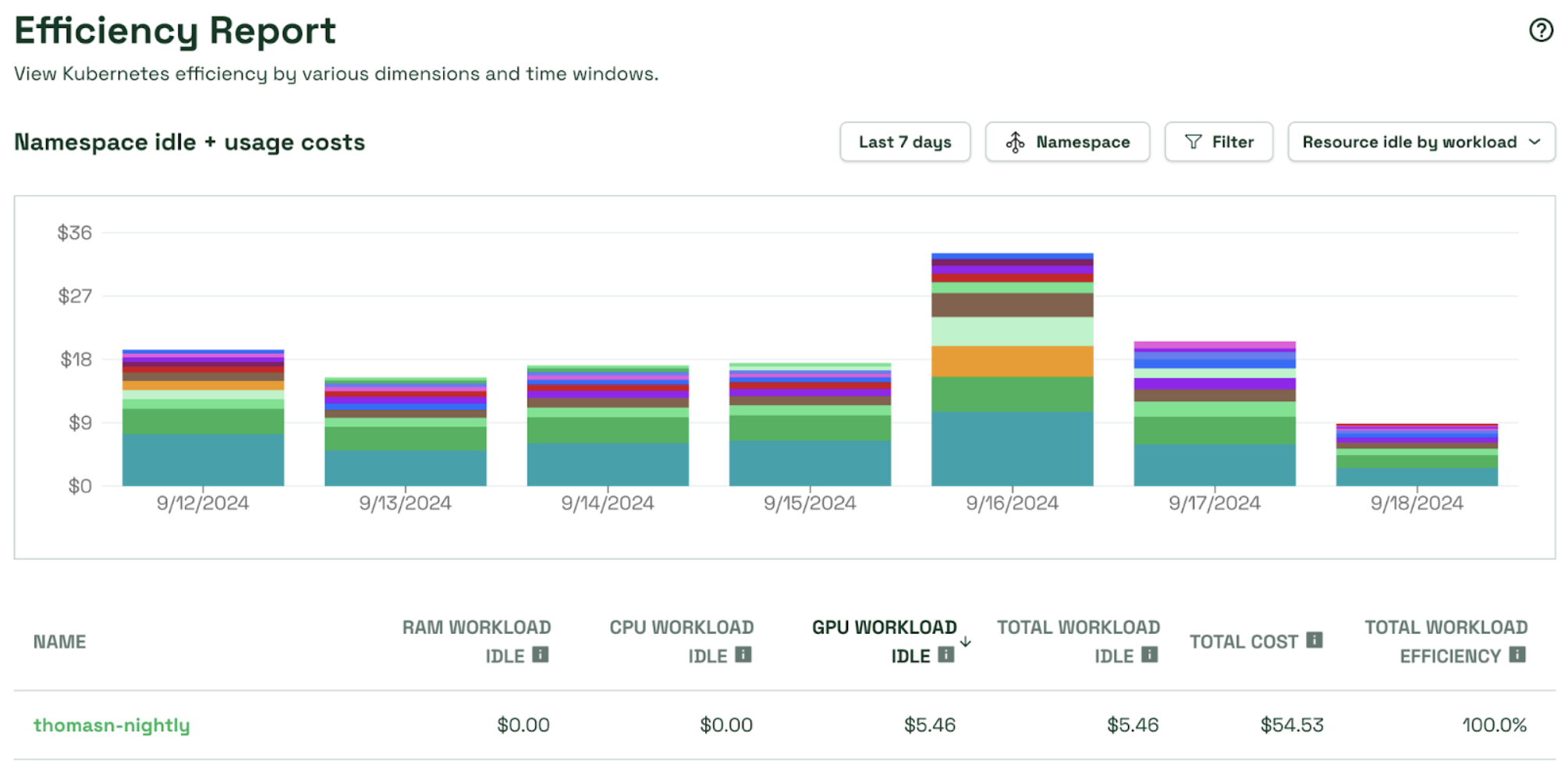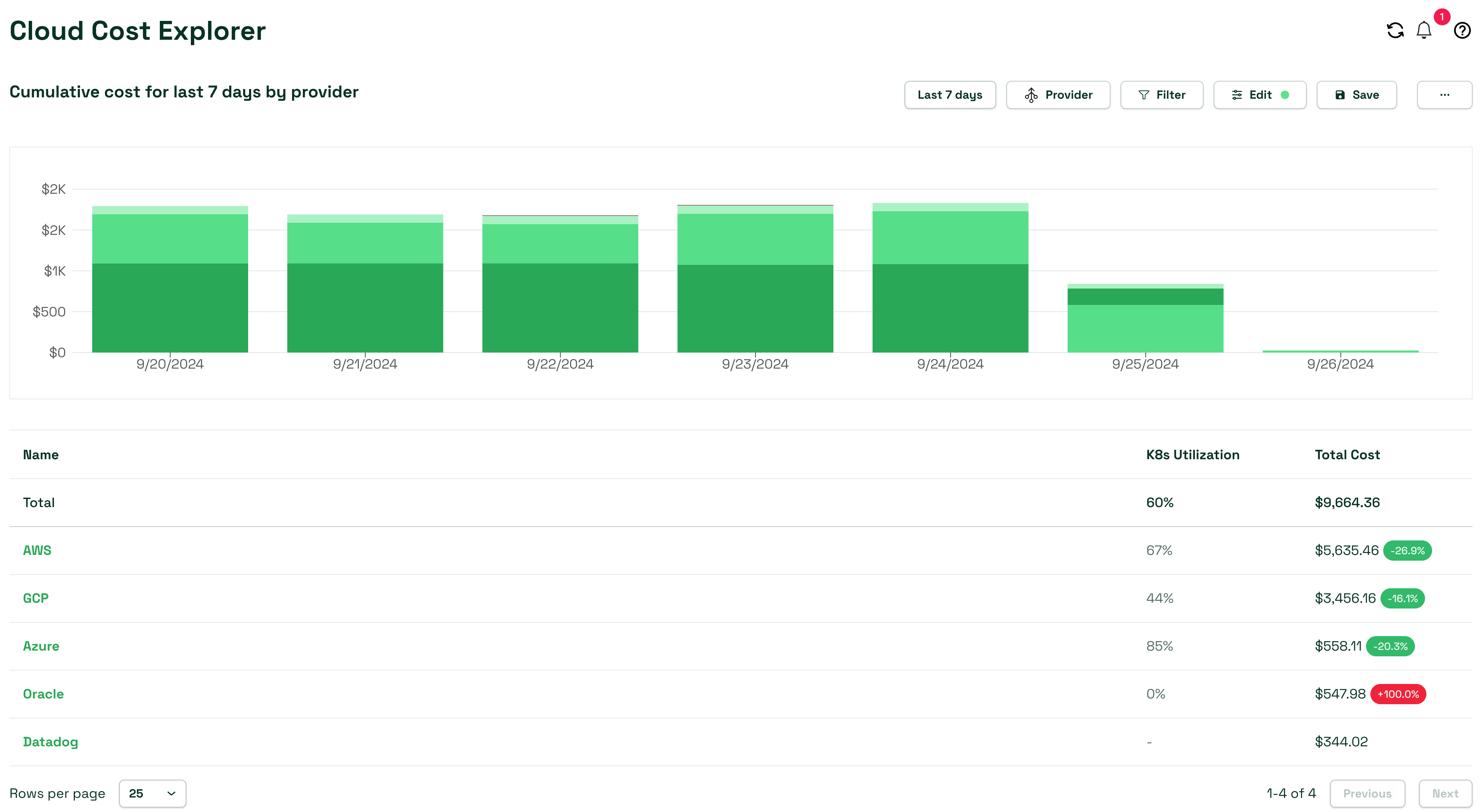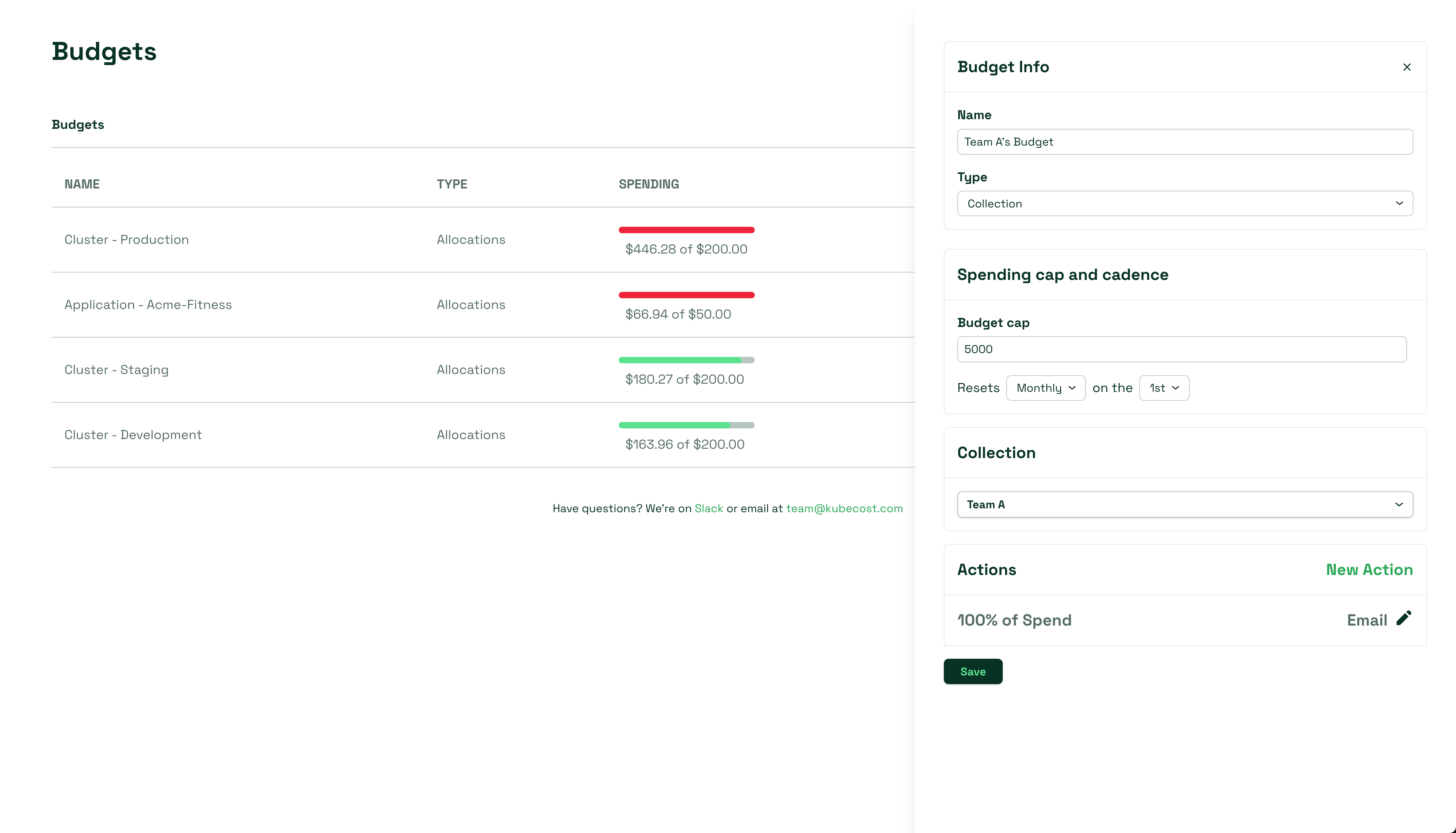Kubecost 2.4 Release Highlights

We’re excited to announce our latest release of Kubecost which adds exciting new GPU monitoring and efficiency tools, OCI integration, budgeting governance for Collections, and a host of other new and improved features across the board. Organizations have been on a spending spree with new GenAI and Machine Learning innovations, but the bills have come due, and being smart about your GPU spend and efficiency levels is the new mandate. We’ve changed the game in Kubecost 2.4 for teams being challenged to sharpen their pencil on GPU costs.
NVIDIA GPU Cost Monitoring and Efficiency
As we head into budgeting season for 2025, Engineering and FinOps teams everywhere will be wrestling with their GPU costs in the cloud and on-premise. Experts predict that spending on GPU hardware to fuel the continued pursuit of killer Generative AI apps in 2024 could exceed $300 Billion. Even then, demand will outstrip supply, forcing teams to reevaluate their needs (or roadmaps) and how efficiently their utilization of GPU resources has been.

Kubecost 2.4 delivers powerful new capabilities for teams that need to know where their GPU spend is going, where the GPU-related waste is, and how to convert those scarce and expensive resources into highly efficient assets that deliver ROI for the business. Previously, Kubecost could detect and show teams the amount of GPU they had requested, but not what they had actually used. With this new release Kubecost helps teams see their GPU utilization, and consequently, their waste and efficiency levels, empowering teams to save massive amounts of GPU-related spend and make the most of their GenAI and AI/ML hardware investments.
Learn more about these breakthrough capabilities here in our docs.
Kubecost Launches OCI Support

If you’re running Oracle Cloud, it’s never been easier to monitor and wrangle your spending. Kubecost is continuing our mission to ensure that users can monitor all of their IT costs in one place and now provides users a single pane of glass combining their AWS, GCP, Azure, and Oracle bills. This page is fully FOCUS spec compliant so you can easily navigate costs across all of your cloud providers with a consistent set of aggregation and filter options.
Additionally, Kubecost’s world-class Kubernetes cost monitoring and optimization insights are also now available for Oracle clusters! From real-time, container-level cost visibility to automated container request right sizing, Kubecost has everything you need to monitor, optimize, and govern your Oracle spend.
New Cloud Cost Aggregations and Filters
Kubecost 2.4 provides a suite of new FOCUS-compliant filters and aggregations users can leverage to see their cost and efficiency data through various FinOps lenses. Kubecost now offers 17 unique aggregation points, ranging from Clusters and Namespaces to Products and Teams. Users can easily view single or multiple-filter aggregations to see cost allocations sliced exactly as desired.
Viewing Idle Costs in Collections
Collections are a powerful tool for creating showback and chargeback reports for a given business unit, product, team, or any other construct. With 2.4 teams can now include Idle Costs (from allocations) in Collection Reports to account for the full cost of their Kubernetes clusters. Users can configure how idle costs are presented in the Kubernetes Costs in the Collections Page with options to Hide, Share by Node, or Share by Cluster. If ‘Hide’ is selected, Collections does not present idle costs. If ‘Shared by Node’ or ‘Shared by Cluster’ is selected, the Kubernetes costs shown in the Costs not in Collection tab will include their relevant idle costs. This new global setting can be found at the bottom of the General Settings page.
Budgets for Collections
Kubecost Collections now supports Budgets and the ability to alert stakeholders when their overall costs (Kubernetes and cloud) for a given Collection exceeds a specified threshold amount. Alerts can trigger emails, and webhooks are provided for easy integration with Slack and Microsoft Teams.

Cluster Rightsizing Gets More Knobs
Users can now get much more granular regarding Cluster Rightsizing Recommendations. Previously only available at the cluster level, Kubecost’s Cluster Rightsizing Recommendations are now delivered at a more atomic Node Group level. The additional control gives teams more precise tools to drive down Kubernetes spend by eliminating waste through request rightsizing. But we didn’t stop there. Cluster Rightsizing Recommendations can now be configured to ignore certain instance types, such as those for which you have special discounts. Conversely, you can also now configure Cluster Rightsizing Recommendations to only consider certain instance types when calculating recommendations, allowing you to focus on the cost-savings opportunities that matter to your team.
View Idle Costs Separately in Allocations
With the 2.4 release users can now choose to have Idle Costs shown as it’s own line item in Allocations, separating it from other costs for improved visibility and tracking. This new change allows viewing Idle Costs on a per-node or per-cluster basis, instead of as a single line item.
Enhancements and Fixes
As with every Kubecost release, we’ve bundled numerous feature enhancements and bug fixes along with new capabilities. Here’s a recap of the smaller, but always important improvements you’ll find in Kubecost 2.4.
Other 2.4 Enhancements
- Support for BYO SMTP certificates when configuring private SMTP server alerts
- Ability to apply a standard discount to all secondary clusters
- Various bug fixes
- See the full Kubecost 2.4 release notes
How to Upgrade or Get Started.
To upgrade your existing Kubecost install, simply run this helm command:
helm repo add kubecost https://kubecost.github.io/cost-analyzer/ && \
helm repo update && \
helm upgrade kubecost kubecost/cost-analyzer -n kubecost
If you aren’t currently using Kubecost, installation is simple. Get started in minutes and embark on a journey towards cost optimization and financial transparency. Your cloud infrastructure (and your wallet) will thank you!